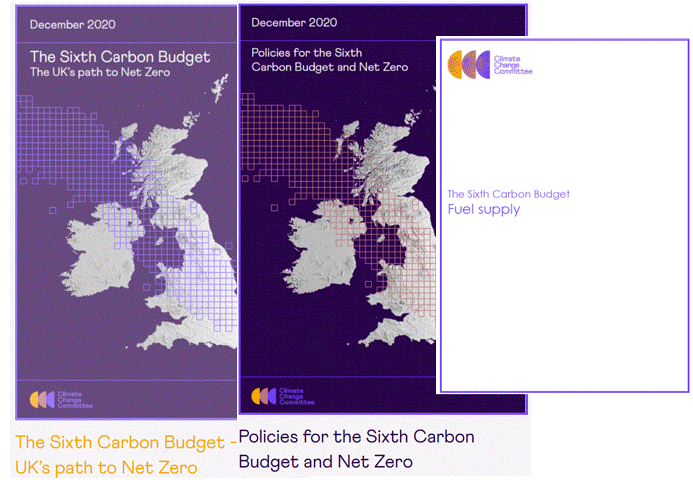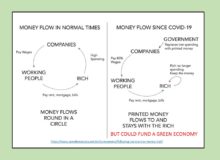 Do you pay Council Tax? Do you have a pension fund? Do you have investments or a savings account? Do you belong to a Religious organisation?
Do you pay Council Tax? Do you have a pension fund? Do you have investments or a savings account? Do you belong to a Religious organisation?
If so your money may be spent looking for more reserves than could ever be burned without triggering serious Climate Change and thus supporting companies that profit from dirty fuel. The Governor of the Bank of England, Mark Carney gave a speech in Sept 2015 to Lloyds of London reporting on the “The impact of climate change on the UK insurance sector A Climate Change Adaptation Report by the Prudential Regulation Authority” He pointed out that “The later carbon emissions begin meaningfully to decrease, the faster the pace of reductions required“. The report explains that “There is evidence from the academic community to suggest climate change and other environment-related factors are not properly integrated into financial or corporate decision-making and consequently not properly priced.”
A report from Mercer concludes that the 2°C degree scenario has no negative return implications in the long term for the diversified investor. Increasingly this is being understood by the investment industry. For instance the Institutional Investors Group on Climate Change wrote to the G7 Finance ministers in May 2015 exhorting them to support emissions targets at the Paris conference in December.
Carbon Tracker published End of the Load for Coal and Gas in September 2016, discussing the Levelised Cost of Electricity (LCOE) across Wind, Sun, Coal and Gas globally. It concluded that, when in-life and post life costs and cost of money were compared equally “investors basing their investment decisions on coal and gas continuing to be the cheapest source of electricity could be deeply misguided“, even where the cost of carbon is disregarded.
At the global level the Task Force on Climate-related Financial Disclosures, commissioned by the G20 published the Recommendations of the Task Force on Climate-related Financial Disclosures (TCFD) on 14th December 2016, aiming “to give investors, lenders and insurers visibility of how climate-change risk will affect individual businesses” in the context of the 2°C Paris Agreement. Jeremy Leggett’s Dec 2016 State of Transition called this “a report to hold the potential to change the world.”
See below for further reasons to avoid fossil fuel companies and some links to assist you to divest. Demanding that your money is taken out of fossil fuel companies can be effective.
Trustees have a duty to listen to the preferences of fund holders, as well as a duty to not incur unnecessary risk with their money. So the more people who ask for their money to be divested from fossil fuel the more likely it is to happen.
Where an organisation has a long term or ethical purpose the argument to avoid damaging the planet is particularly strong – hence the number of universities and charities that have divested. Go Fossil Free has a good resources section to help.
Your Council’s Tax deposits and pensions.
350° org has an interactive tool to discover what every Council invests in fossil fuels.
Residents of Haringey signed a petition asking Haringey Council to:
“divest its own financial holdings and those of its pension fund from any business which is involved in the exploration or production of coal and tar sands within two years; and immediately to freeze any new investment in fossil fuel companies”. Pension Funds Online reported that, as a result, Haringey “pledged to invest one third of its equity funds into a low carbon fund.“
Residents of Camden can also sign a petition “The London Borough of Camden should immediately freeze any new investments in fossil fuels, and divest from direct ownership and any commingled funds that include fossil fuel public equities and corporate bonds within 5 years.”
London’s investments. Following a briefing report by 38deg ‘The Case for Fossil Fuel Divestment‘ including:”The Mayor and Assembly’s targets for emissions reduction are undermined by their investment in companies whose business models explicitly rely on those targets not being met.” see Boris Johnson’s rejection of divestment at Divest London “we are therefore going to need to invest in exploiting our own domestic energy reserves and explore the potential for fracking in the UK.”
According to this Parliamentary report (2009) there can be some misunderstanding as to who is responsible for advising Local Authorities re their investments – so clarifying that the Local Authority should seek professional advice but retain ultimate responsibility can be helpful.
Your Religious investments
The COP22 INTERFAITH STATEMENT ON CLIMATE CHANGE of 10th Nov 2016 has signatures from Christians, Muslims, Buddhists and Jews.
Your own investments – Pensions
One route is firstly to find out who to contact, such as the Trustee or Manager. Send them a letter, along the lines of the Guardian template. If you are told that there is no fossil free investment option be persistent. Publicise the risks to your pension investment around other colleagues. (but note, for workers in the NHS, civil service or state school, your pension will not be associated with the stock market)
The Asset Owners Disclosure Project lists schemes that have submitted data to see if your pension is rated.
Another route is to use Share Action’s facility to contact your pension scheme. This finds address details and the suggested text includes: “I am writing to ask that you share your investment strategy to ensure that my savings stand up to the risks posed by climate change, and will strategically support the profitable transition to a low-carbon economy as required by targets set at COP21 to limit global temperature rises.”
Your Investment Portfolio
There are some investment funds that are ‘ethical’, but not necessarily fossil free. Carbon Tracker 200 has a list of “the top 100 public coal companies globally and the top 100 public oil and gas companies globally, ranked by the potential carbon emissions content of their reported reserves. The reserves of these companies total 555 gigatons (Gt) of potential CO2 emissions, almost five times more than can be burned for the world to have an 80% chance of limiting global temperature rise to 2°C (3.6° F).”
So avoiding these send a message that investors do not want to profit from ‘dirty power’ or provide funds to search for more deposits.
Mercer group recently published Investing in a Time of Climate Change including “depending on the climate scenario which plays out, the average annual returns from the coal sub-sector could fall by anywhere between 18% and 74% over the next 35 years, with effects more pronounced over the coming decade (eroding between 26% and 138% of average annual returns). Conversely, the renewables sub-sector could see average annual returns increase by between 6% and 54% over a 35 year time horizon (or between 4% and 97% over a 10-year period).”
(note no advice is being given here. Consult your usual financial advisor)
Fossil Free Indices and Tracker Funds
Increasingly Fossil Free Indices are being developed eg MSCI ACWI that illustrates that fossil fuel free share returns can be higher than standard portfolios, a opinion that is confirmed by S&P 500 “ten year total return performance chart of our three-star rated global ethical equity funds we can see that one has beaten the benchmark and both funds have beaten their sector peer group average over that period”
Tilney Best Invest has an ethical investment report, explaining the issues and options and listing their ‘top ethical picks’ where most of the funds listed are almost fossil fuel free and others only invest in wind/solar.
(note no advice is being given here. Consult your usual financial advisor)
Bank and Building Society Savings
Your Bank savings Some banks have ethical principles. See moveyour money.org.
For instance Triodos has an ethical investment fund that takes that takes a different approach, investing in smaller ethical businesses (no fossil fuels)
(note no advice is being given here. Consult your usual financial advisor)
Engaging with Pension Providers and Companies
Share Action Campaign “The Green Light campaign encourages pension providers to embed climate-awareness into their investment decisions, into dialogue with companies and into policy advocacy. The campaign is supported by a broad coalition of unions, NGOs, and faith groups.”
“The Green Light campaign focuses on the interests of these growing numbers of younger savers who bear all the investment risk in their pension funds and are therefore particularly exposed to the financial implications of climate change and natural resource scarcity.”
“The campaign uses a diverse range of methods to instigate and encourage a shift towards climate-aware investing. These include one-to-one pension fund engagement and trustee training sessions to improve and share knowledge about the investment risks posed by climate.”
And Carbon Tracker has a clear infographic on how investors can unlock the insights into carbon risk information.
Arming yourself with arguments
Financial Risk of Current and New Reserves – Mark Carney, Governor of the Bank of England “reiterated his warning that fossil fuel companies cannot burn all of their reserves if the world is to avoid catastrophic climate change, and called for investors to consider the long-term impacts of their decisions.”
This was at the World Bank’s annual informal climate ministerial on carbon pricing. After the event, Rachel Kyte, the World Bank Group’s vice president and special envoy for climate change, said businesses had made a welcome contribution to the discussions. She said businesses had called for better communication between different carbon trading platforms and carbon taxes around the world, while governments had been clear that any carbon pricing mechanism should not penalise the poor.
However, whilst action from world leaders shows little sign of ensuring a move from fossil fuels to renewables, domestic customers can insist on electricity from renewable sources, thus exerting their market power to good effect.
10 Myths about fossil fuel divestment put to the sword – (Guardian)
- Divesting from fossil fuel will result in the end to civilisation
- We use fossil fuels every day so divestment is hypocritical
- Divestment is not meaningful action – it’s just gesture politics
- Divestment is pointless. It can’t bankrupt the coal, oil and gas companies
- Divestment means stocks will be picked up cheaply by investors who don’t care about climate change at all.
- Shareholder engagement is the best way to drive change.
- Divestment means investors will lose money
- Fossil fuels are essential to ending world poverty
- Most fossil fuels are owned by State controlled companies, not the publicly traded companies targeted by divestment.
- It’s none of your business how other people invest their money
More information in this 38deg informatic ‘7 REASONS TO SELL YOUR COAL, OIL, GAS STOCKS NOW’ in contrast to message of typical investment company. “57 trillion infrastructure investment including energy needed by 2035 due to population growth…”
Key Figures from the Guardian’s Keep it in the Ground – Mar 2015
- “2C: There is overwhelming agreement – from governments, corporations, NGOs, banks, scientists, you name it – that a rise in temperatures of more than 2C by the end of the century would lead to disastrous consequences for any kind of recognised global order.
- 565 gigatons: “Scientists estimate that humans can pour roughly 565 more gigatons of carbon dioxide into the atmosphere by mid-century and still have some reasonable hope of staying below 2C,” is how McKibben crisply puts it. Few dispute that this idea of a global “carbon budget” is broadly right.
- 2,795 gigatons: This is the amount of carbon dioxide that if they were burned would be released from the proven reserves of fossil fuel – ie the fuel we are planning to extract and use.
You do not need much of a grasp of maths to work out the implications. There are trillions of dollars worth of fossil fuels currently underground which, for our safety, simply cannot be extracted and burned. All else is up for debate: that much is not.
To listen to a Guardian Keep it in the Ground podcast click here.
Global Lobbying against Fossil Fuels
350.org Fossil Free campaign. “350.org is building a global climate movement. Our online campaigns, grassroots organizing, and mass public actions are coordinated by a global network active in over 188 countries.”
“In 2013, fossil fuel companies spent some $670bn (£443bn) on exploring for new oil and gas resources. One might ask why they are doing this when there is more in the ground than we can afford to burn,” he said.
“The investors in those companies might feel that money is better spent either developing low-carbon energy sources or being returned to investors as dividends,”
Engage with companies who further Climate Change
Share Action – Clean Words Dirty Lobby “goal is to get companies to step up to their alleged environmental beliefs and stop funding the lobbyists who are working against those ideals.”



